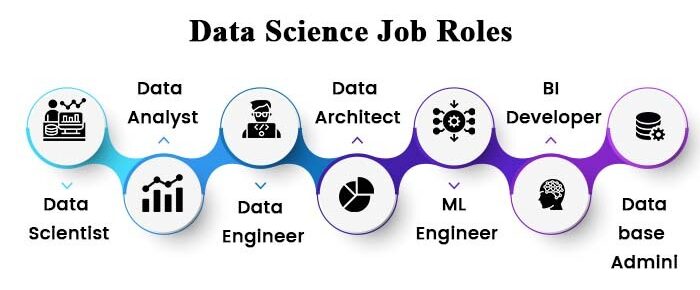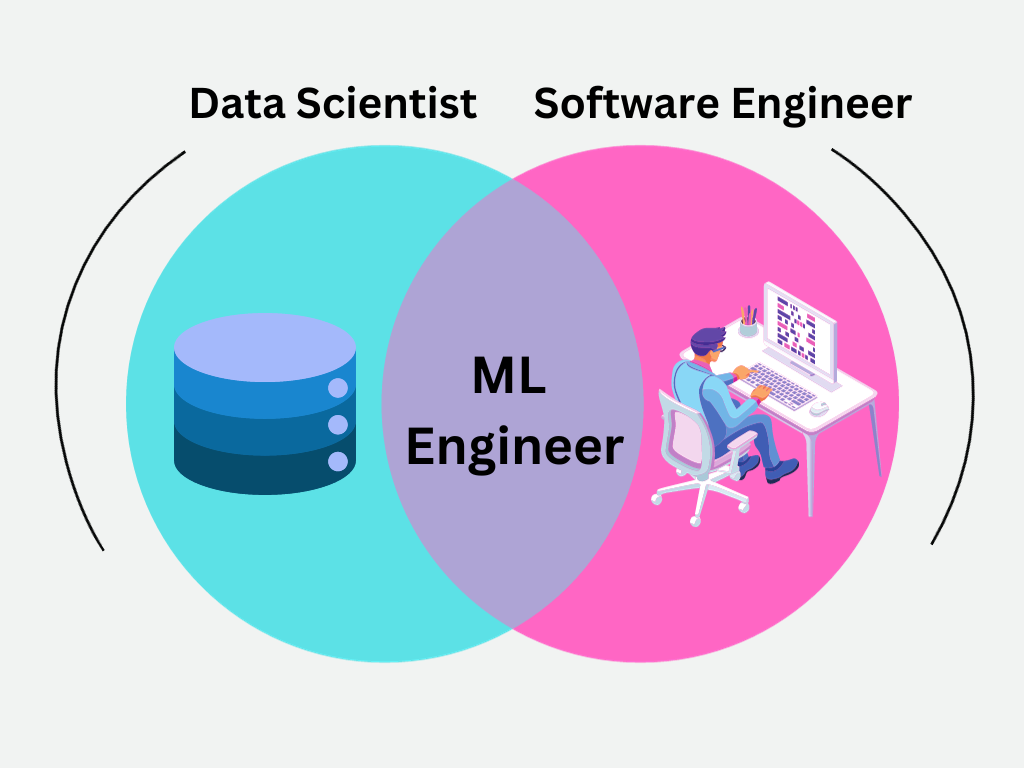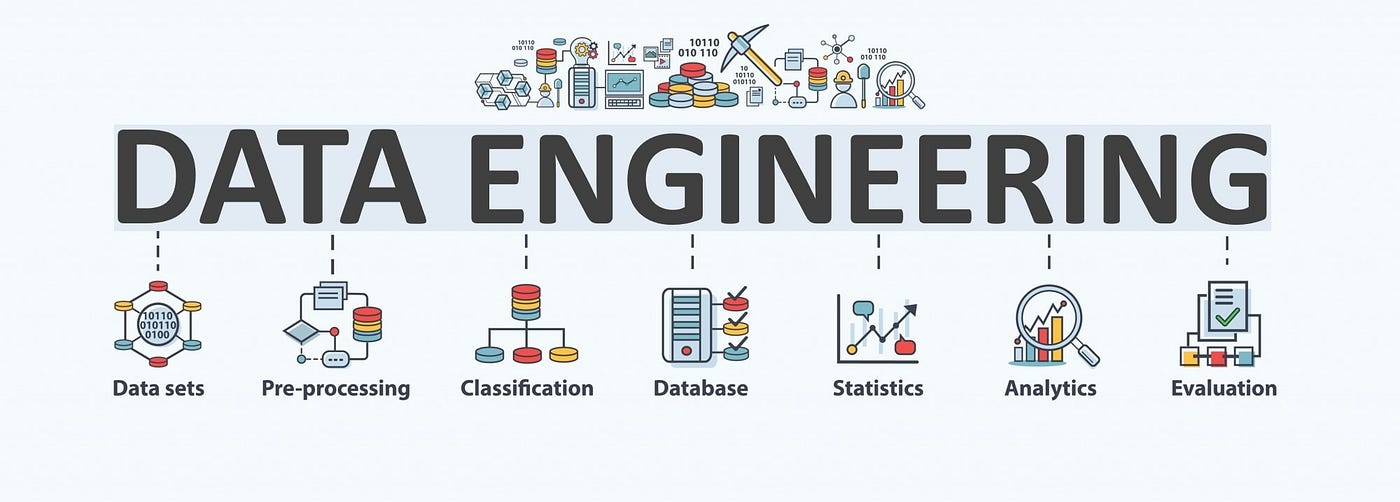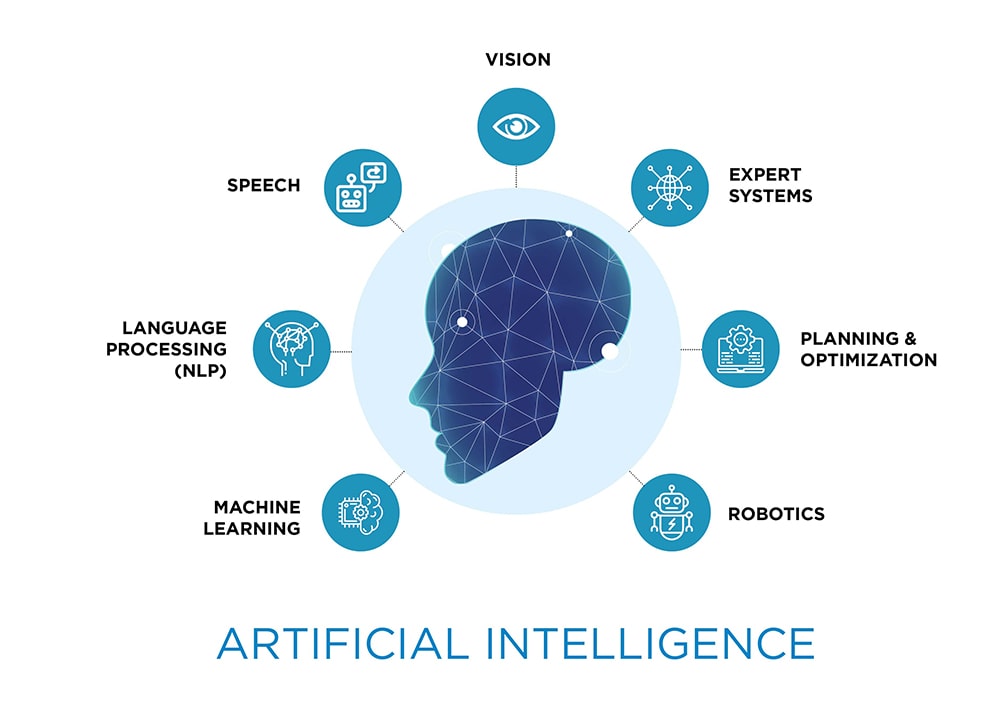
Beyond the Buzzword: Exploring Diverse Career Paths for Data Scientists
An extensive exploration of the diverse job roles available for data scientists, detailing responsibilities, required skills, and career progression for each path, complete with illustrative images.
Beyond the Buzzword: Exploring Diverse Career Paths for Data Scientists
Introduction
"Data Scientist" has become a ubiquitous term, often used broadly to describe anyone working with data. However, beneath this umbrella term lies a rich tapestry of diverse roles, each with unique responsibilities, skill sets, and career trajectories. If you're considering a career in data science, or are already in the field and looking to specialize, understanding these different paths is crucial.
This blog post will delve into the exciting landscape of data science careers, exploring various job types that a data scientist can pursue. We'll go beyond the generic label to uncover the nuances of each role, helping you identify the path that best aligns with your interests and strengths. Get ready to discover the multifaceted world of data science careers!
1. The Data Scientist (Generalist/Full-Stack)

Role Overview: Often considered the "classic" data scientist role, the generalist data scientist is involved in the entire data science lifecycle, from problem definition to model deployment and communication of insights. They are versatile professionals who can wear many hats.
Responsibilities:
- Problem Definition: Working with stakeholders to understand business problems and translate them into data science questions.
- Data Collection and Wrangling: Identifying and accessing relevant data sources, cleaning, transforming, and preparing data for analysis.
- Exploratory Data Analysis (EDA): Investigating data to understand patterns, identify anomalies, and formulate hypotheses.
- Feature Engineering: Creating new features from existing data to improve model performance.
- Model Building and Selection: Developing and training machine learning models, selecting the best model based on performance metrics and business needs.
- Model Evaluation and Validation: Assessing model performance, ensuring robustness and generalization, and validating model assumptions.
- Communication and Storytelling: Presenting findings, insights, and recommendations to technical and non-technical audiences through visualizations and reports.
- Model Deployment (Sometimes): In some organizations, generalist data scientists might also be involved in deploying models to production environments.
Required Skills:
- Strong foundation in Mathematics and Statistics.
- Proficiency in Programming Languages (Python, R).
- Expertise in Data Wrangling and Databases (SQL, NoSQL).
- Solid understanding of Machine Learning and Deep Learning algorithms.
- Excellent Data Visualization and Communication skills.
- Problem-solving and critical thinking abilities.
- Domain knowledge relevant to the industry.
Career Progression: Generalist Data Scientists can progress to senior data scientist roles, lead data science teams, or specialize in a specific area of data science (e.g., NLP, computer vision, specific industry).
2. Machine Learning Engineer

Role Overview: Machine Learning Engineers focus on the practical aspects of machine learning, specifically building, deploying, and maintaining machine learning models in production environments. They bridge the gap between research and application.
Responsibilities:
- Model Deployment and Scaling: Taking machine learning models developed by data scientists and deploying them into scalable and reliable production systems.
- Building Data Pipelines: Designing and implementing robust data pipelines to ingest, process, and transform data for model training and inference.
- Performance Optimization: Optimizing model performance for speed, latency, and resource efficiency in production environments.
- Monitoring and Maintenance: Setting up monitoring systems to track model performance in production, identifying model drift, and retraining models as needed.
- Infrastructure Management: Working with cloud platforms and infrastructure to support machine learning deployments (e.g., AWS, Google Cloud, Azure).
- Developing Machine Learning Tools and Libraries: Contributing to the development of internal machine learning tools and libraries to improve team efficiency.
- Collaboration with Data Scientists and Software Engineers: Working closely with data scientists to understand model requirements and with software engineers to integrate models into applications.
Required Skills:
- Strong Programming Skills (Python, Java, Scala, C++).
- Solid understanding of Machine Learning algorithms and model development.
- Expertise in Software Engineering principles and best practices.
- Experience with Cloud Computing platforms (AWS, Google Cloud, Azure).
- Knowledge of DevOps practices and tools (CI/CD, Docker, Kubernetes).
- Familiarity with Big Data technologies (Spark, Hadoop) is often beneficial.
- Understanding of Model Deployment frameworks and tools.
Career Progression: Machine Learning Engineers can advance to senior ML Engineer roles, become team leads, or move into roles like ML Engineering Manager or Architect, focusing on the strategic direction of ML infrastructure and deployment within an organization.
3. Data Analyst

Role Overview: Data Analysts are focused on extracting insights from data to answer specific business questions and inform decision-making. They excel at data exploration, visualization, and communication.
Responsibilities:
- Data Collection and Cleaning (Often lighter than Data Scientist): Gathering data from various sources and performing initial data cleaning and preparation.
- Exploratory Data Analysis (EDA): Conducting in-depth data analysis to identify trends, patterns, and anomalies.
- Data Visualization and Reporting: Creating dashboards, reports, and presentations to communicate findings to stakeholders in a clear and actionable manner.
- Answering Business Questions: Using data to answer specific questions posed by business teams, providing data-driven insights to support decision-making.
- Performance Monitoring: Tracking key performance indicators (KPIs) and identifying areas for improvement.
- Developing Data-driven Recommendations: Providing recommendations based on data analysis to improve business processes and outcomes.
- Working with Business Intelligence (BI) tools: Utilizing tools like Tableau, Power BI, or Qlik Sense to create interactive dashboards and reports.
Required Skills:
- Strong Analytical and Problem-solving skills.
- Proficiency in Data Analysis tools (Excel, SQL).
- Expertise in Data Visualization and storytelling.
- Good understanding of Statistics and data analysis techniques.
- Familiarity with Programming Languages (Python, R) can be beneficial, but not always essential.
- Strong Communication skills to present findings effectively.
- Domain knowledge related to the business area they support.
Career Progression: Data Analysts can progress to Senior Data Analyst roles, become Data Analytics Managers, or transition into more specialized roles like Business Intelligence Analyst, Marketing Analyst, or Financial Analyst. Some Data Analysts also move into Data Science roles with further skill development in machine learning.
4. Data Engineer

Role Overview: Data Engineers are the architects and builders of the data infrastructure. They focus on designing, building, and maintaining the systems that collect, store, and make data accessible for analysis and machine learning.
Responsibilities:
- Building and Maintaining Data Pipelines: Developing robust and scalable data pipelines for data ingestion, transformation, and loading (ETL/ELT).
- Data Warehousing and Data Lake Design: Designing and implementing data warehouses and data lakes to store and manage large volumes of data.
- Database Management: Managing and optimizing databases (SQL and NoSQL) to ensure data availability, performance, and security.
- Big Data Technologies: Working with big data technologies like Hadoop, Spark, Kafka, and cloud-based data services.
- Data Governance and Quality: Implementing data quality checks, data validation processes, and ensuring data governance policies are followed.
- Infrastructure as Code: Using infrastructure as code tools (e.g., Terraform, CloudFormation) to automate infrastructure provisioning and management.
- Performance Tuning and Optimization: Optimizing data infrastructure for performance, scalability, and cost-efficiency.
Required Skills:
- Strong Programming Skills (Python, Java, Scala).
- Expertise in Database Systems (SQL and NoSQL).
- Deep understanding of Data Warehousing and Data Lake concepts.
- Experience with Big Data technologies (Hadoop, Spark, Kafka).
- Proficiency in Cloud Computing platforms (AWS, Google Cloud, Azure) and data services.
- Knowledge of DevOps principles and tools.
- Understanding of Data Governance and Data Security best practices.
Career Progression: Data Engineers can advance to Senior Data Engineer roles, become Data Engineering Managers, or move into roles like Data Architect, focusing on the overall data strategy and infrastructure for an organization.
5. Research Scientist (Data Science/Machine Learning)

Role Overview: Research Scientists in Data Science and Machine Learning are focused on pushing the boundaries of knowledge in the field. They conduct original research, develop new algorithms and methodologies, and publish their findings in academic conferences and journals.
Responsibilities:
- Conducting Original Research: Identifying research problems, formulating research questions, and designing research studies.
- Developing New Algorithms and Methodologies: Inventing novel machine learning algorithms, statistical methods, and data analysis techniques.
- Experimentation and Validation: Designing and conducting experiments to validate research hypotheses and evaluate the performance of new methods.
- Publishing Research Papers: Writing and publishing research findings in academic conferences, journals, and workshops.
- Staying up-to-date with the latest research: Reading and understanding research papers, attending conferences, and engaging with the research community.
- Collaboration with other Researchers: Working with other researchers, both within and outside the organization, on research projects.
- Applying Research to Real-world Problems (Sometimes): In some industry research roles, researchers may also be involved in applying their research to solve practical business problems.
Required Skills:
- Doctorate (PhD) degree in Computer Science, Statistics, Mathematics, or a related field is often required.
- Deep understanding of Mathematics, Statistics, and Machine Learning theory.
- Strong Research Skills and scientific methodology.
- Proficiency in Programming Languages (Python, R, C++).
- Excellent Publication record in relevant academic venues.
- Strong Communication and Presentation skills to explain complex research findings.
- Passion for research and innovation.
Career Progression: Research Scientists typically progress along a research track, advancing to Senior Research Scientist, Principal Research Scientist, or Research Director roles. Some may also move into academic positions or leadership roles in research organizations.
6. Business Intelligence (BI) Developer/Analyst

Role Overview: BI Developers and Analysts focus on providing insights into business performance through dashboards, reports, and data visualizations. They help organizations monitor KPIs, track progress, and identify areas for improvement. While there's overlap with Data Analyst roles, BI roles often have a stronger focus on pre-built dashboards and reporting infrastructure.
Responsibilities:
- Dashboard Development and Maintenance: Designing, building, and maintaining interactive dashboards using BI tools (Tableau, Power BI, Qlik Sense).
- Report Generation and Automation: Creating and automating the generation of regular reports on key business metrics.
- Data Modeling for BI: Designing data models optimized for BI reporting and dashboarding.
- Data Extraction and Transformation for BI: Extracting data from various sources, transforming it for BI purposes, and loading it into BI systems.
- Performance Analysis and Trend Identification: Analyzing business performance data, identifying trends, and providing insights to stakeholders.
- Requirements Gathering for BI Solutions: Working with business users to understand their reporting and dashboarding needs and translate them into BI solutions.
- User Training and Support for BI Tools: Providing training and support to business users on how to use BI tools and dashboards.
Required Skills:
- Expertise in Business Intelligence (BI) tools (Tableau, Power BI, Qlik Sense).
- Strong Data Visualization and Dashboarding skills.
- Good understanding of Data Warehousing concepts and data modeling for BI.
- Proficiency in SQL for data extraction and manipulation.
- Analytical and Problem-solving skills to interpret business data.
- Strong Communication skills to present BI insights effectively.
- Domain knowledge of the business areas they support.
Career Progression: BI Developers/Analysts can advance to Senior BI Analyst, BI Developer roles, become BI Managers, or specialize in specific BI technologies or industries. Some may also transition into Data Analytics Management or Data Science roles with further skill development.
7. AI/ML Consultant

Role Overview: AI/ML Consultants provide data science and machine learning expertise to clients across various industries. They help organizations adopt AI/ML technologies, solve business problems using data science, and develop AI strategies.
Responsibilities:
- Client Engagement and Needs Assessment: Working with clients to understand their business challenges and identify opportunities for AI/ML solutions.
- Developing AI/ML Strategies: Creating AI/ML strategies and roadmaps for clients, aligning AI initiatives with business goals.
- Designing and Implementing AI/ML Solutions: Developing and implementing custom AI/ML solutions for clients, often across diverse industries and problem domains.
- Project Management: Managing AI/ML consulting projects, ensuring timely delivery and client satisfaction.
- Technical Expertise and Guidance: Providing technical expertise and guidance to clients on AI/ML technologies, best practices, and implementation approaches.
- Presentations and Workshops: Delivering presentations and workshops to clients to educate them about AI/ML and showcase potential solutions.
- Business Development: Contributing to business development efforts by identifying new client opportunities and developing proposals.
Required Skills:
- Strong foundation in Data Science and Machine Learning.
- Excellent Problem-solving and analytical skills.
- Proficiency in Programming Languages (Python, R).
- Strong Communication and Presentation skills, including client-facing skills.
- Consulting skills: Needs assessment, solution design, project management, client relationship management.
- Broad industry knowledge and ability to quickly learn new domains.
- Adaptability and flexibility to work on diverse projects and client engagements.
Career Progression: AI/ML Consultants can progress to Senior Consultant, Managing Consultant, or Partner roles within consulting firms. Some may also move into leadership positions within client organizations after gaining consulting experience.
Skills Overlap and Specialization
It's important to note that there is significant skill overlap between these roles. For example, all data science roles benefit from strong analytical, problem-solving, and communication skills. Programming and database skills are also valuable across many roles.
However, as the field matures, there's a growing trend towards specialization. Data science is becoming too broad for one person to master everything. Therefore, many data scientists are choosing to specialize in areas like:
- Natural Language Processing (NLP): Focusing on text analysis, language understanding, and building language-based applications.
- Computer Vision: Specializing in image and video analysis, object detection, and image generation.
- Time Series Analysis and Forecasting: Developing expertise in analyzing and forecasting time-dependent data.
- Recommender Systems: Building systems to personalize recommendations for users (e.g., product recommendations, content recommendations).
- Deep Learning: Becoming experts in deep learning techniques and neural network architectures.
- Specific Industry Domains: Developing deep expertise in applying data science within a particular industry (e.g., healthcare, finance, marketing).
Specialization can lead to deeper expertise and greater career opportunities within a chosen niche. However, a strong generalist foundation is often beneficial before specializing.
Choosing Your Data Science Career Path

With so many diverse career paths, how do you choose the right one for you? Consider these factors:
- Your Interests: What aspects of data science genuinely excite you? Are you fascinated by building models, analyzing data, engineering systems, conducting research, or consulting with clients? Align your career path with your passions for greater job satisfaction.
- Your Strengths: What skills do you naturally excel at? Are you a strong programmer, a skilled communicator, a deep thinker, or a creative problem-solver? Choose a path that leverages your inherent strengths and allows you to shine.
- Your Educational Background and Experience: Your existing skills and knowledge will influence which paths are more accessible initially. Consider how your background can be leveraged and what skills you might need to develop further for different roles.
- Career Goals: Where do you see yourself in 5 or 10 years? Do you aspire to be a technical leader, a research innovator, a business strategist, or a client-facing consultant? Think about your long-term career aspirations and select a path that aligns with your goals.
- Industry Preferences: Are you drawn to a specific industry (e.g., healthcare, finance, technology, entertainment)? Some roles might be more prevalent or in higher demand in certain industries. Explore industries that pique your interest and investigate the data science career landscape within them.
It's also perfectly acceptable to start in one role and transition to another as you gain experience and refine your interests. Many data scientists move between different types of roles throughout their careers, gaining breadth and depth of experience.
Conclusion
The world of Data Science careers is rich, varied, and full of opportunities. Moving beyond the general term "Data Scientist," we've explored diverse paths like Generalist Data Scientist, Machine Learning Engineer, Data Analyst, Data Engineer, Research Scientist, BI Developer/Analyst, and AI/ML Consultant. Each role offers unique challenges and rewards, requiring a distinct blend of skills and expertise.
By understanding these different career paths, you can make informed decisions about your education, skill development, and career trajectory. Whether you are drawn to the analytical depth of a Data Analyst, the engineering rigor of a Machine Learning Engineer, or the research focus of a Research Scientist, there's a place for you in the exciting and ever-evolving field of Data Science.
Embrace the diversity of roles, explore your passions, and embark on your journey to a fulfilling and impactful career in data science!
If you're excited about the possibilities within Data Science and want to discuss career paths further, let's connect! ( ^-^)**(^0^ )
Thank you for exploring the diverse world of Data Science careers with me! Your questions and career insights are always welcome. ╰(°▽°)╯